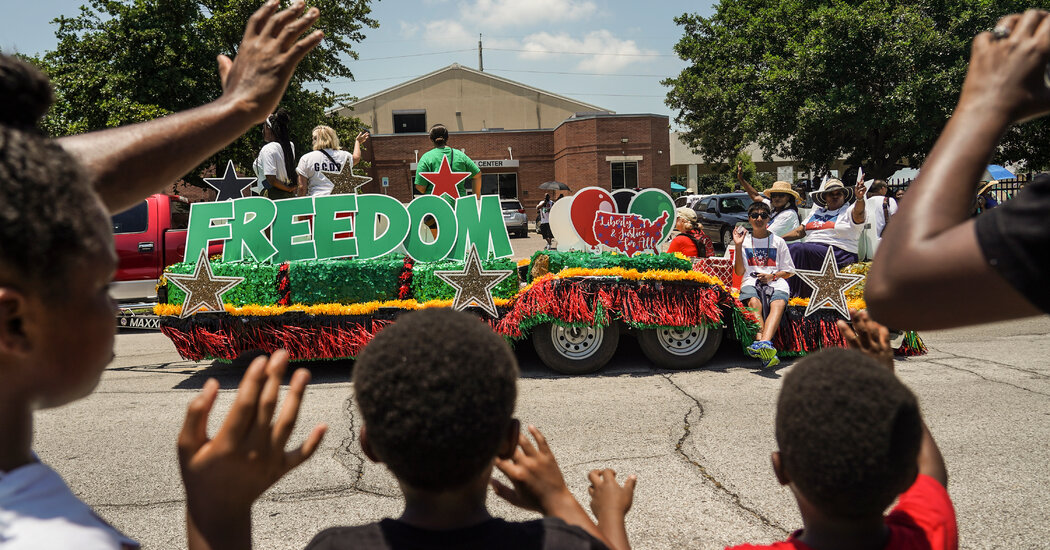
On June 19, 1865, enslaved African Americans in Texas were told they were free. A century and a half later, people across the United States continue to celebrate the day, which is now a federal holiday.
-
This article was originally published in 2020. It was updated in 2024.
Juneteenth, an annual commemoration of the end of slavery in the United States after the Civil War, has been celebrated by African Americans since the late 1800s.
President Biden signed legislation in 2021 that made Juneteenth, which falls on June 19, a federal holiday, after interest in the day was renewed during the summer of 2020 and the nationwide protests that followed the police killings of Black Americans including George Floyd and Breonna Taylor.
There has been a noticeable increase in Juneteenth celebrations across the United States over the past few years.
Here’s a brief guide to Juneteenth.
How did Juneteenth begin?
On June 19, 1865, about two months after the Confederate general Robert E. Lee surrendered at Appomattox, Va., Gordon Granger, a Union general, arrived in Galveston, Texas, to inform enslaved African Americans of their freedom and that the Civil War had ended. General Granger’s announcement put into effect the Emancipation Proclamation, which had been issued nearly two and a half years earlier, on Jan. 1, 1863, by President Abraham Lincoln.
The holiday is also called “Juneteenth Independence Day,” “Freedom Day” or “Emancipation Day.”

